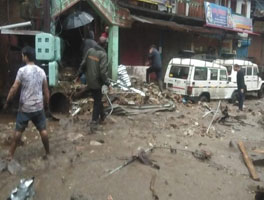 |
Dear readers,
This week, three districts in Uttarakhand - Chamoli, Tehri, and Rudraprayag - observed the sudden occurrence of cloudbursts and flooding again. Climate change is threatening Kenyan tea production due to a sudden rise in temperature and extreme rainfall events. A recent scientific breakthrough has led to the development of Beema Bamboo by a biotechnology company which might have the potential to mitigate climate change.
We also take a look at how distributed renewable energy can be made to work for India, due to its scalability and substantive co-benefits. A recent UNEP report highlights the need for a 45% reduction in human-induced methane emissions to avoid the worst impacts of climate change.
To understand these climate trends and more, our recently launched book Climate Change: Science and Politics can be purchased now from the CSE Store. |
|
 |
| |
 |
|
| |
| EXTREME WEATHER TRACKER |
| |
Cloudbursts in Uttarakhand again, flooding too,
05 May 2021
|
 |
 |
|
|
| |
 |
|
| |
|
|
| |
 |
|
| |
CLIMATE NEWS | SCIENCE| IMPACTS| POLITICS |
|
| |
 |
|
| |
|
|
| |
 |
|
| |
|
|
| |
 |
|
| |
|
|
| |
 |
|
| |
| Book |
|
|
| |
|
|
 |
|
|
| |
|
|